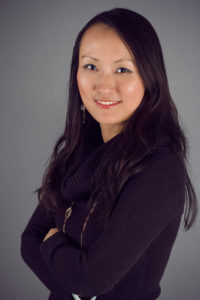 This post was written by Weiwei Shi, who received an ARL+DLF Fellowship to attend this year’s DLF Forum.
This post was written by Weiwei Shi, who received an ARL+DLF Fellowship to attend this year’s DLF Forum.
Weiwei is the Digital Initiatives Applications Librarian at the University of Alberta. She leads the DI development team and manages the development activities to support DI applications and services to enable openness, diversity, and accessibility. She and her team support a wide range of applications such as the discovery services, digital assets management system, various repositories services, digital preservation, and research data management workflow. She has a strong interest in project management, user-centred design and web accessibilities focused on library applications. She has a BSc in management information systems from China and an MLIS from the University of Alberta.
As I started to write this reflection on DLF 2019 by going through the 34 pages of notes I took over three days, I relived those instructive and transformative moments at the conference. The journey started with the opening keynote speaker, Marisa Duarte. And that is what this reflection will be focusing on. However, I want to note that it is truly the underlying theme of Equity, Diversity, and Inclusion (EDI) for the entire conference that provoked my deep thoughts and uplifted me emotionally.
Duarte’s session, titled “Beautiful Data: Justice, Code, and Architectures of the Sublime”, left me a wealth of food for thought and very profound feelings. As a first-generation Chinese immigrant, the notion of “algorithmic domination” is something that often crosses paths with me in life. But I found myself deliberately separate my professional identity from my social self, adjusting the professional image to fit into the “white-dominated norm,” to follow the system instructions that I learned in the western society to help me progress professionally. As a regular Chinese user of various digital library applications, I feel frustrated with the imperial system designs that center the white-dominated perspectives and neglect needs from marginalized groups. However, I oppress the frustration in my professional self. For example, it is nearly impossible to search for materials in library discovery applications and digital collections with my native language. Many aspects contribute to this broken system, from the awkward PinYin-based or less-known English translation records, to the neglection of CJK language support in search algorithm, from the often non-existence CJK OCR, to the biased collection development practices. But I have never challenged the system even though I have worked in the field of library technology for many years. I accepted the norm because I don’t want to, in Duarte’s word, “causing too much trouble” especially because of my race. It is through her powerful statements: “The seeds of our liberation are embedded in the code we create. “, and “With your degree, you are literally entitled, with a certain authority. And it’s your responsibility to do something with that. “, that I found the strength to examine the internalized oppression that has almost perpetuated to my professional identity. Her presentation repeatedly stressed that social justice, diversity, and equity are directly embedded in the data we collect and present (or discard), the technology we use, the algorithm we create, and the platform we develop. And she painted an inspiring image for the profession with her powerful language:
“If conquerors write the history, then librarians and archivists should keep and expose the records of their crimes.”
“Think of yourselves as compassionate time travellers – not only caring for the documents of the past, but also as stewards of documents of the future.”
Looking around the ballroom, I can sense the energy inspired by her talk. I feel both bestowed with the privilege and obligated with responsibilities to be part of this force that shapes the future, the future that my community can interact with the collections of our own records, discover and access them in a way that is sensible and relevant to them. Just a few weeks before the conference, a fellow Chinese librarian and I discussed the possibility of establishing a Canadian-Chinese digital library that enables the dissemination of the community collections across the country. Now, more than ever, after Duarte’s inspiring keynote, I feel an urgency to take on such responsibility. To paraphrase Duarte, we need to break the library rules and norms, and not to be stuck in the tyranny of the bureaucracy. We need to come together and negotiate boundaries for social justice and EDI. And that “we” includes me and many others who like me, have tried so hard to “blend in”.
On my flight to DLF, I imagined the conference to be very practical, a great blend of content curators, metadata librarians, and library information technology practitioners such as myself, talking through operational challenges and trends for our digital library applications. And yes, in a sense, the conference was like that. But Duarte’s keynote provoked profound conversations, reinvigorated our collective passion, and allowed me to reflect on personal values and places where I can, and should be more proactively contribute my voice and knowledge.
I want to express my sincere gratitude to both ARL/DLF fellowship that gives me such an opportunity and to Marisa Duarte for such an enlightening and motivating speech.
